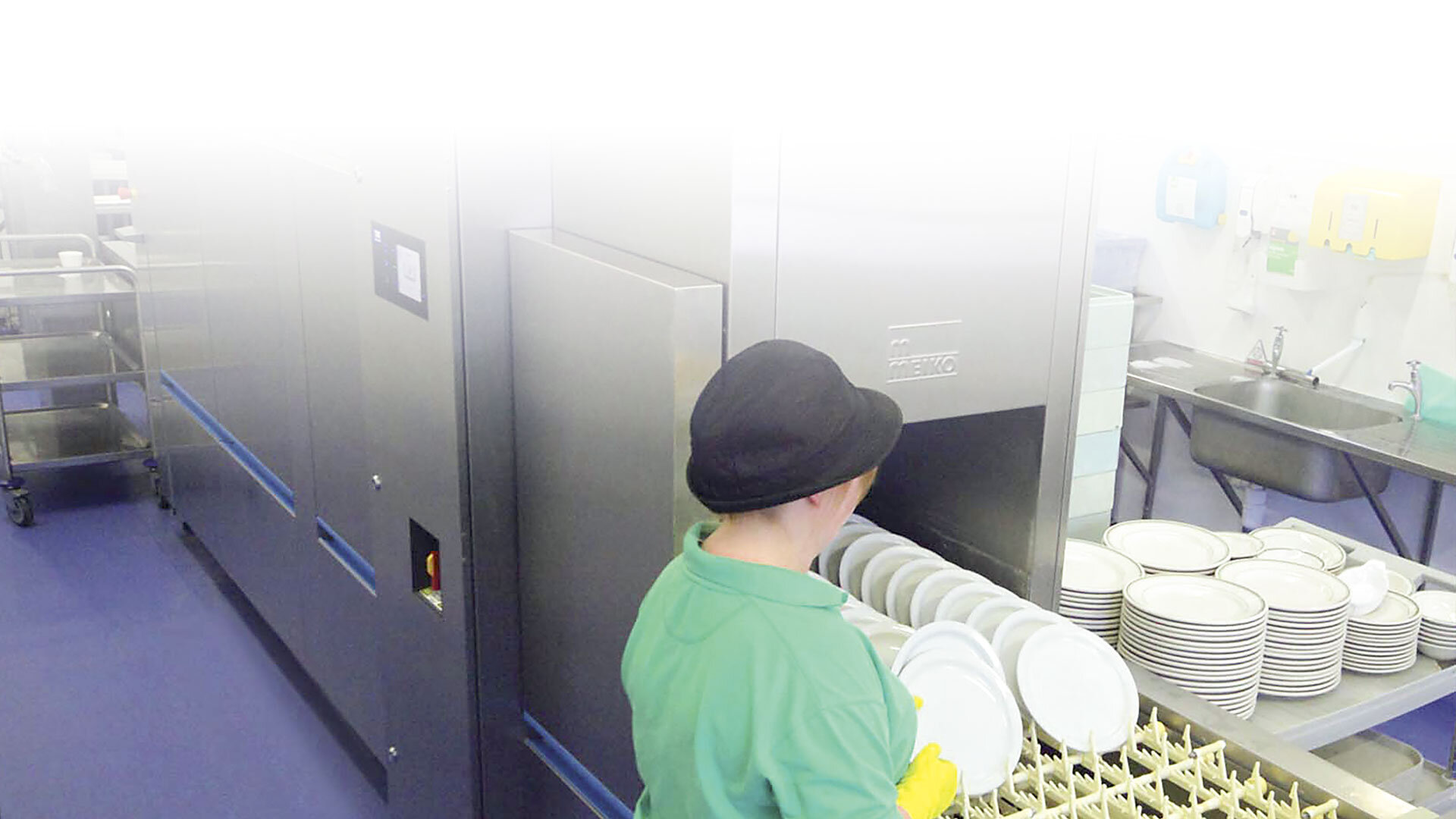In sensitive environments like hospitals, cleanliness isn’t an option — it is an absolute necessity. At-risk patients with compromised immune systems are more susceptible to developing foodborne illnesses which means hospital kitchens must have proper equipment and guidelines to protect guests and visitors.
Commercial dishwashers that exceed sanitation practices are just one component of an effective and safe hospital kitchen operation. Here are three things hospitals need to consider when purchasing and operating a commercial dishwasher:
1. Sanitation
When concerning food safety and sanitation, temperature is the determining factor between safe and unsafe practices. Machines need to keep water temperature high and maintain consistency to successfully sanitize the table ware.
It is also important for a commercial dishwashing machine to be simple to operate and easy to routinely clean to ensure sanitation standards and quality of results are maintained through its daily cycles.
2. Technology
Technology is ever-changing, and advancements in dishwashing have allowed for kitchen operations to improve efficiency and quality of work for staff. Features like automatic temperature control, temperature-reading updates and tailored cleaning cycles all contribute to a pleasant experience behind the scenes and peace of mind.
MEIKO’s automatic temperature control option is a good example. It ensures the machines will not wash until it has achieved the correct temperature is good for the Hazard Analysis and Critical Control Points (HACCP) food safety plan. The M-iQ dishwashing machines can run wireless temperature checks that download collected data to the computer at any time.
3. Dependability
High-traffic operations require a dependable commercial dishwsaher, and a healthcare facility needs just the same. Kitchens in hospitals can run thir dishwashing machines upwards of 12-15 hours of continuous operation to account for the volume of patients. Commercial dishwashing machines can also clean several thousand pieces of cutlery, trays and plates.
With these needs, reliability of the dishwshing machine needs to be on forefront. When a repair is needed, or routine maintenance is due, hospitals should make sure that their dishwashing manufacturer of choice has a network of qualified technicians to work on the dishwahing machines.
As a potent, concentrated environment, hospitals need to especially be on top of their food safety and sanitation measures. With the use of the proper equipment, tools and knowledge, institutions can greatly reduce the risk of spreading foodborne illnesses.
For more information, please visit our case studies and insights on how MEIKO dishwashing machines best fit your healthcare operation.


